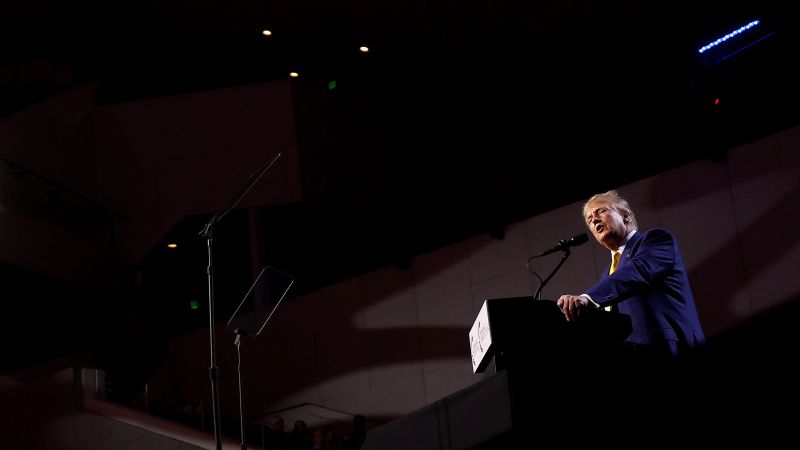Former President Donald Trump returned to Washington for the first time since becoming the presumptive Republican nominee and a convicted felon. He held closed-door meetings with key congressional allies, vice presidential hopefuls, and former outspoken opponents, all of whom are expected to support him in the upcoming election. The bitter primary and general election cycle, marred by Trump’s legal troubles, have caused Republicans to struggle to align on policies and proposals for the election year.
During the meetings, Trump was expected to outline campaign priorities and policies, focusing on the economy, inflation, tax cuts, and immigration. He also reiterated his commitment to not cutting entitlement programs like Social Security and Medicare for seniors. The discussions also encompassed potential second-term agenda details and how to immediately implement policy goals if reelected to the White House. House Republicans sought information to kickstart legislative action on Capitol Hill in the next year.
Trump’s reception among House and Senate Republicans varied, with skeptics like Sen. Lisa Murkowski and Sen. Todd Young uncertain about attending the meetings. Trump’s appearance on the Hill marked his first time meeting with key Republicans since the January 6 insurrection, including Senate GOP Leader Mitch McConnell, with whom he has had a strained relationship. Despite tensions, Trump’s biggest supporters, including potential vice-presidential picks, were present, seeking a focused strategy to defeat President Joe Biden.
House members expected a supportive and enthusiastic audience for Trump’s visit, with some dressing in Trump-branded attire to show their support. The meeting was seen as an opportunity to reset the party after internal tensions over various issues like House Speaker Mike Johnson, the war in Ukraine, and border security strategies. While some believed the gathering would primarily focus on winning in November rather than governing agendas, others sought a clearer direction to confront the current administration.
There was increased pressure on House GOP leadership to defend Trump following his hush money conviction in New York, with efforts to pass legislation allowing state-level cases involving presidents to move to federal court gaining steam. Despite differences, House and Senate Republicans acknowledged that Trump’s messaging during the meetings was likely to be unpredictable and focused more on airing grievances than discussing policy plans or campaign strategies. The meeting provided an opportunity for Trump to rally support and align Republicans behind him for the upcoming election.













